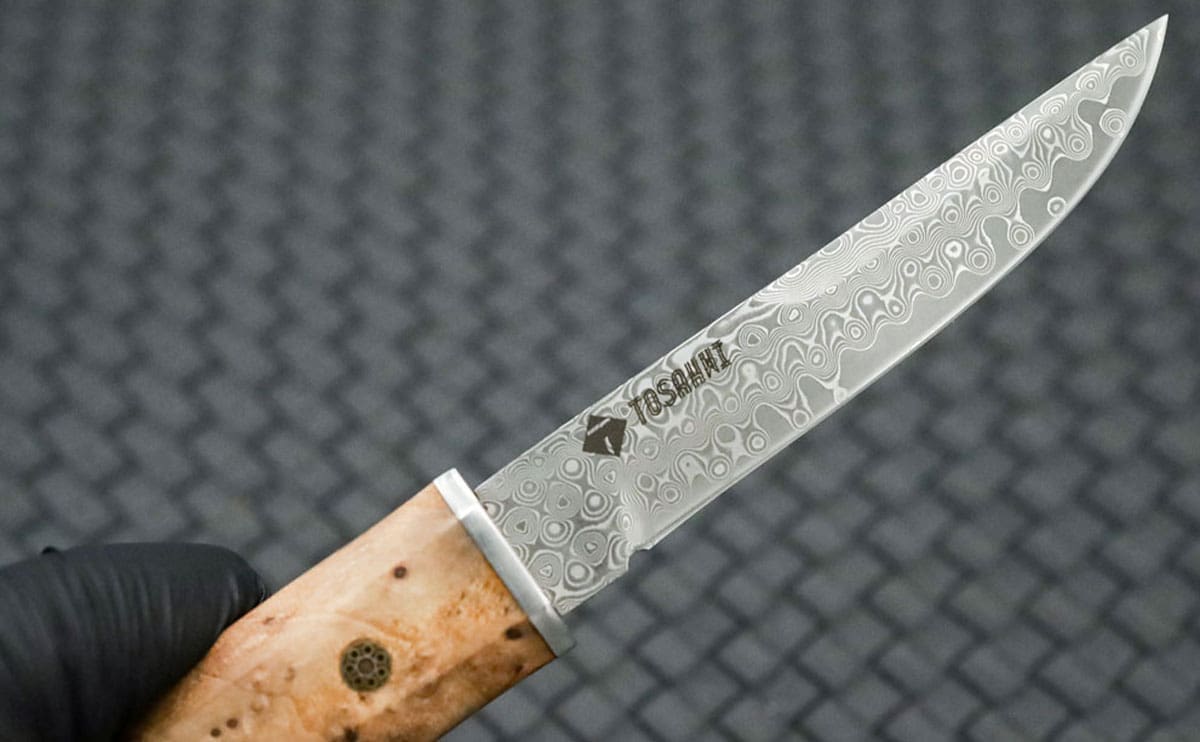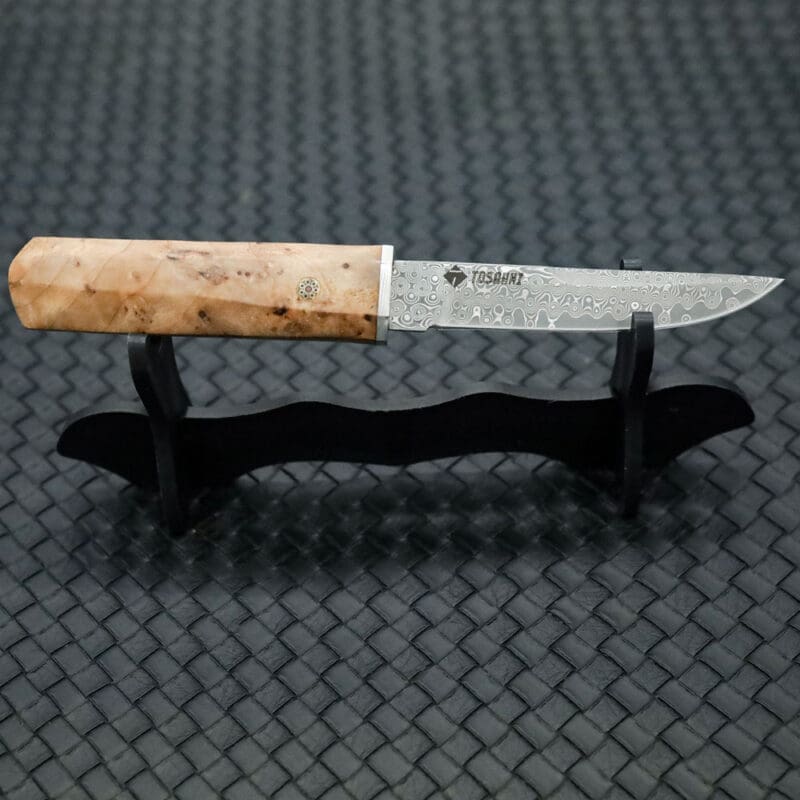Is Damascus Steel Good? A Collector’s Perspective on Beauty, Legacy, and Performance

If you’re a blade collector, you know there’s more to a knife than just utility. It’s about the story, the craftsmanship, the aesthetic — and sometimes, the mystery. One name that consistently rises to the top of collector wishlists is Damascus steel. But is Damascus steel good, or is it just a decorative trend?
Let’s take a deeper look — not just from a metallurgical standpoint, but from the perspective of what makes a blade collectible.
The Allure of Damascus Steel
Aesthetic Excellence
One of the biggest reasons collectors flock to Damascus steel is simple: no two blades look alike. The signature wavy or swirled patterns created through layering and folding steel are mesmerizing. Some resemble wood grain, others ocean waves, or smoke trails — all etched into the blade itself.
Owning a Damascus piece often feels like owning a functional sculpture.
Rich Historical Legacy
The origin of Damascus steel dates back over a thousand years, with roots in the ancient Middle East. Original Damascus blades were forged from wootz steel, known for their legendary cutting power and durability. While true wootz Damascus is lost to history, modern blades inspired by those techniques still carry immense historical and cultural value.
For collectors, this makes each piece not just a knife — but a link to the past.

Why Damascus Steel Is a Collector’s Dream
Craftsmanship on Display
Modern Damascus blades are often hand-forged by skilled artisans who blend multiple steels, fold them repeatedly, and acid-etch the surface to reveal stunning patterns. The process is labor-intensive and requires a high degree of skill.
A Damascus blade from a known bladesmith can be a centerpiece of any collection — showcasing both metallurgical complexity and artistic beauty.
Rarity and Value
High-quality Damascus knives — especially those made in limited batches or by famous makers — can be extremely valuable. As with any collectible, rarity and provenance play a big role. The more distinctive the pattern, the more intricate the construction, the more collectible the piece.
Customization Potential
Because Damascus forging allows for near-infinite variation in pattern and steel combinations, many collectors commission custom builds. Owning a one-of-a-kind Damascus blade with a personalized handle, engraving, or etching elevates it from a simple tool to an heirloom-level artifact.
Caution: Not All Damascus Is Worth Collecting
While Damascus can be exceptional, the collector market is also filled with mass-produced, low-quality pieces that simply mimic the appearance of true Damascus.
Watch out for:
- Etched “fake” Damascus: Some cheap blades have surface patterns applied by laser or acid, but aren’t made from folded steel at all.
- Unknown steel sources: If the maker doesn’t disclose which steels were used, you may be dealing with a decorative blade that lacks functional integrity.
- Lack of maker info: Collectibles gain value from traceable origin. If a knife doesn’t come from a known smith or reputable brand, it likely won’t appreciate in value.
As a collector, always vet the maker, understand the materials, and look for pieces that balance visual appeal with structural integrity.
The Not-So-Good: What You Need to Watch Out For
Not All Damascus Is Created Equal
Many cheap knives on the market today are marketed as “Damascus” but are mass-produced with etched patterns that mimic the look — without the performance. These may be made from low-quality steel or lack proper heat treatment, making them underwhelming in use.
Requires Maintenance
If the blade is made from high-carbon Damascus, it can be prone to rust and staining if not properly cared for. You’ll need to:
- Keep it dry
- Oil it regularly
- Avoid dishwashers or harsh chemicals
This makes Damascus less ideal for those who want low-maintenance blades.
Often Expensive
High-quality Damascus knives can be costly, and you might find that a monosteel blade made from top-tier materials (like VG-10, S35VN, or 52100) outperforms a Damascus blade at a lower price — if performance is your only concern.
Final Thoughts: Is Damascus Steel Good for Collectors?
Absolutely — when it’s the real deal.
For collectors, Damascus steel is one of the most rewarding materials to own. It offers:
- Visual uniqueness
- Historical resonance
- Artisan-level craftsmanship
- Investment value
But like any collectible, it’s essential to know what you’re buying. Skip the knockoffs and seek out blades made by reputable bladesmiths or knife houses. Look for signatures, serial numbers, and documentation when possible.
Damascus steel is more than good — it’s a timeless symbol of metallurgy, artistry, and legacy. And for a collector, that makes it nearly priceless.
